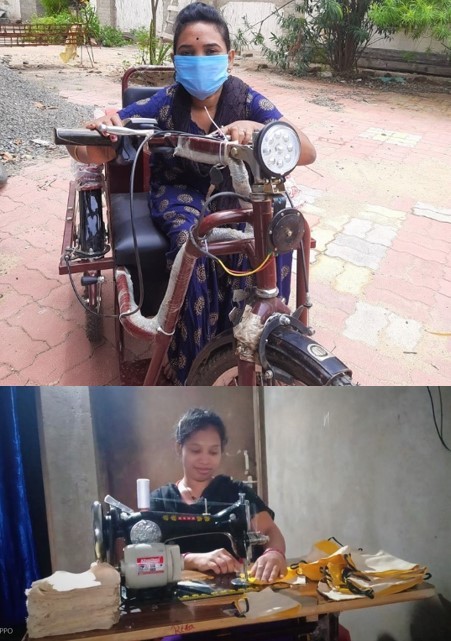India
- History
- Our Work
- Transforming Development Through Innovation & Partnership
- U.S.-India Triangular Cooperation
- Partnership for Energy Access and Security
- Partnership for Sustainable Forests in India
- Partnerships for Health
- Partnership for Education
- Partnership for Water Sanitation and Hygiene (WASH)
- Partnership for Food Security
- Partnership for Gender Equality
- Investing in Afghanistan
- Foreign Assistance Data
- Newsroom
- Newsletters and Fact Sheets
- Speeches
- Resources For Implementing Partners (RFIP)
- Careers
- Partnership Opportunities
- Success Stories
Speeches Shim

Rita Sahoo contracted polio during her childhood, when the disease still caused death and disability among large numbers of Indian children and adults. Sahoo was sent by her family to live in an ashram (residential facility) at the age of four. As she got older, the ashram refused to keep her and she had to return home, where she lived with her parents, two sisters, and brother. Her mother tried to care for her but her alcoholic and abusive father disliked her, ensuring that her treatment needs were neglected. And although she had gone to school through the 10th grade, Sahoo worked as an unpaid cook, compensated only with a daily meal. As time wore on, the entire family began to neglect her, eventually leaving her alone to fend for herself when they moved away.
With nothing left to lose, Sahoo left for the seaside city of Puri, in India’s coastal state of Odisha. A helpful neighbor told her about the USAID-supported ‘Building Capacity of Women with Disabilities in India,’ which is implemented by the Shanta Memorial Trust (SMRC). The program works to transform discriminatory social norms and practices directed at women with disabilities in three Indian states, to ensure that legal, economic, and administrative structures are responsive to their safety and independent living needs. A community worker with SMRC helped Sahoo learn sewing and, because she is a hard worker, she completed a six-month tailoring course in just three months. Currently, she is working and earning a salary that, with SMRC’s support, allows her to live on her own. SMRC helped her learn to manage her accounts and banking and deal with the local vendors independently and she hopes to eventually earn enough to become completely independent.

Comment
Make a general inquiry or suggest an improvement.